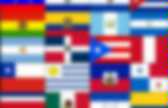

Argentina: Paying for the sins of the past - Inside Story Americas. Two former leaders during Argentina's military rule, Jorge Videla and Reynaldo Bignone, have been found guilty of overseeing the systematic theft of babies from political prisoners.

The case concerned 34 of the more than 400 babies stolen from parents while they were held in detention centres. Videla assumed power in the military coup of 1976 and ruled the country for five years. He consolidated the position of the right-wing regime by commencing what is known as the dirty war, in which between 10,000 to 30,000 of the dictatorship's political opponents were killed. Videla's conviction has been greeted with relief by the victims of the regime. But Argentina's punitive approach stands in contrast to the approach of other countries in the region in confronting their brutal pasts. Brazil, which was ruled by a military dictatorship between 1964 and 1985, has set up a truth and reconciliation commission but no one is set to face criminal trial for their crimes.
Fernández de Kirchner reforms spark Argentina protests. Argentina is braced for a wave of protests against the government of Cristina Fernández de Kirchner, amid growing disquiet over a faltering economy and efforts to clamp down on the media. Activists hope to rally thousands of people on Thursday for a string of demonstrations against a proposed constitutional reform that would allow Fernández to seek a third term in 2015, and a move to break up the country's main media group. In the five years since Fernández succeeded her husband Néstor Kirchner in office, Argentina has grown increasingly polarised between those who argue the president's reforms will create a more egalitarian society, and opponents who accuse her creeping authoritarianism.
"A wide gulf has opened," said Jorge Lanata, the chain-smoking journalist whose weekly satirical TV show Periodismo Para Todos (Journalism For All) has helped shift the balance of public opinion. "We do not represent any political party," he said. At Clarín itself the atmosphere is tense.
Regional Trade. Reflections on a Revolution. Nicaragua. Chile. Brazil. Honduras. Latin America - History / Political Economy. Cuba. Mexico. Welcome to portside! Andean Information Network. North American Congress on Latin America. Upside Down World. Simon Bolivar: A Great Freedom Fighter. The Haitian Revolution. Interactive Timeline. Click on the images in the timeline for more information. 1535 Spain establishes colonial government in Mexico. 1821 Mexico wins independence from Spain. 1824 Mexico becomes a republic. 1842 Juan Seguín is elected Mayor of San Antonio, Texas, but is forced to flee in response to Anglo aggression. 1847 U.S. forces under General Winfield Scott enter Mexico City; peace negotiations with Mexico begin. 1848 Gold is discovered at Sutter’s Mill in the Sacramento Valley area of California.

By 1849, large numbers of U.S. pioneers and immigrants from around the world travel to the mining area. 1853 The Gadsden Purchase Treaty is signed. 1857 Anglo businessmen try to push Mexican teamsters out of south Texas, violating the guarantees of the Treaty of Guadalupe Hidalgo. 1862 France, Britain, and Spain attempt to force Benito Juarez’s government to repay debts owed. 1883 Chinese labor is reduced because of the Chinese Exclusion Act, and railroad companies search for alternative sources of cheap labor. 1944 Bretton Woods International Monetary Conference.